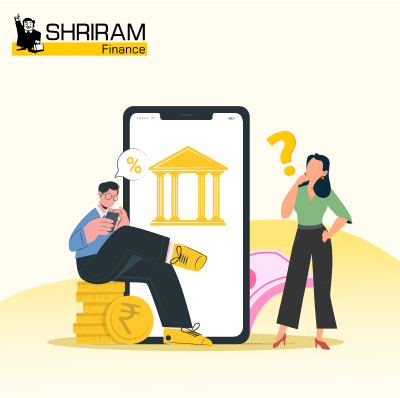Personal loans have become a go-to option for lots of Indians when it comes to handling major expenses—things like home repairs, medical emergencies, weddings, or even paying for higher studies. With online applications and hardly any paperwork, it’s now easier and quicker than ever to get a personal loan. But while this convenience is great, you also need to watch out for risks to your personal data and privacy.
In this article, we’ll talk about why data privacy matters when applying for personal loans online. We’ll cover:
- Why protecting your data is important
- What kind of personal information lenders collect
- The laws in India that keep your data safe
- Common risks and threats you should watch out for
- Tips to keep your online loan application secure
- Clear answers to your common questions about keeping your personal information safe when applying for loans
By the end, you will understand the major privacy issues and risks involved with personal loans.
The Importance of Personal Data Privacy
Financial data is highly confidential, requiring strict protocols to prevent leaks and unauthorised access. With online applications, applicants submit personal data such as income statements, bank statements, PAN details, and Aadhaar numbers. This data can provide deep insights into your financial situation, creditworthiness, identity, contact information, and more.
In the wrong hands, this data could enable financial fraud, identity theft, or targeted spam and phishing attacks. Applicants rightfully expect service providers such as loan companies, fintech platforms, and credit bureaus to uphold data privacy and security standards. Negligence could lead to a decline in consumer trust, besides facing regulatory repercussions.
For lending companies, too, leaks could have profound implications, ranging from loss of competitive advantage, litigation expenses, and heavy penalties to long lasting reputational damage. Maintaining data privacy in personal loan with a reliable data security architecture and practices works in favour of both applicants and providers.
Types of Personal Data Collected and Used
Let us look at the typical types of personal data collected from applicants during online personal loan applications and how it is used:
Basic Personal Information
Name, date of birth, address, contact details, marital status, dependents, etc., are used for initial eligibility checks and KYC verification.
Financial Information
Income statements, bank account statements, credit card statements, existing loan obligations, and credit scores help assess repayment capabilities.
Tax Information
PAN, Form 16, and ITRs help validate income claims and may factor into credit decisions.
Legal Information
ID proofs such as a passport, a driving license, a voter ID, or an Aadhaar card help confirm identity.
Device Information
IP address, device ID, operating system, browser type, etc., are used to track website activities and protect against bot threats.
Most data helps make smart decisions, but it should only be collected and kept for clear, specific reasons following data protection rules.
Regulations Governing Data Privacy in India
There are several regulations to ensure online loan application security. India enacted the Information Technology Act, 2000, to regulate digital information storage and exchange. The Information Technology (Reasonable Security Practices and Procedures and Sensitive Personal Data or Information) Rules, 2011, under this Act, laid the foundation for data privacy governance in India.
In August 2023, India passed the Digital Personal Data Protection Act, 2023 (DPDP Act). This new law regulates the processing of digital personal data while recognising the rights of individuals to protect their data and the need to process such data for lawful purposes.
Features of the DPDP Act:
- Defines "Personal Data" and requires consent before processing.
- Grants individuals rights such as access, correction, erasure, and grievance redressal.
- Mandates organisations to adopt reasonable security safeguards.
- Introduces penalties for breaches, including fines up to ₹250 crore.
Fintech companies and digital lending platforms are now expected to comply with the DPDP Act, alongside the RBI’s digital lending guidelines for personal loan data protection.
Common Threats and Security Risks
Despite regulations for data security in online loans, applicants in India still face significant data privacy and security risks, requiring caution:
1. Data Breaches
Unauthorised data access by cybercriminals is, unfortunately, very common. From system weaknesses to human error, breaches can enable fraud or illegal data trade, threatening financial and personal security.
2. Hidden Tracking Tools
Many websites install hidden trackers and surveillance tools to monitor activities without consent. These threaten privacy, besides system vulnerabilities such as an unwanted code being executed.
3. Identity Theft
Phishing links mimicking legitimate websites or calls asking for confidential information have also grown over the years. Identity theft can lead to access to existing accounts or new fraudulent lines of credit.
4. Credit Damage
If financial data is exposed, it may irreparably damage credit scores or necessitate credit freezes, preventing access to future credit. Victims are left to battle with legal hassles and losses increasing from fraud.
Best Practices for Secure Online Personal Loan Applications
While threats persist, applicants can uphold self-interest by following certain best practices to get secure online personal loans:
1. Research Provider Reputation and Security Standards
Check complaint forums and social channels to understand customer experiences, especially related to data handling, before applying to any loan provider. Review their data security claims as well.
2. Limit Information Disclosure
Provide only the necessary information at different application stages to maintain personal loan data security. Offer additional data only on request, as it aids direct processing for your application alone instead of forming searchable databases.
3. Read Privacy Policies Thoroughly
Understand exactly what data is gathered, verification modes used, sharing with credit bureaus and external agencies, data retention policies after application decisions, etc., before furnishing information or accepting terms of service.
4. Assess Encryption Standards
Look for HTTPS-layered websites only, using higher encryption standards (2048-bit or more), securing financial applications.
5. Use Strong Passwords
Create unique alphanumeric passwords, introducing special characters or punctuation without dictionary words for login access to loan portals and linked email accounts. Enable dual-factor authentication if available.
6. Recognise and Avoid Frauds
Check directly with customer care on unknown calls or emails requesting confidential data prior to responding. Do not click suspicious links or download unverified attachments either.
While no single method grants absolute security, applicants remaining alert and proactive suffer lower risk exposure from inevitable threats around online lending ecosystems.
Conclusion
As more people turn to digital loans, keeping your interests safe is just as important to us as meeting business goals. Having strong systems and clear rules to protect your data is now the basic way we do things—not just an extra to impress you. While using online services always comes with some risks, it’s important for borrowers to stay alert too. At Shriram Finance, we’re committed to putting your privacy first because we believe that’s the foundation of trust and a brighter financial future together.
































